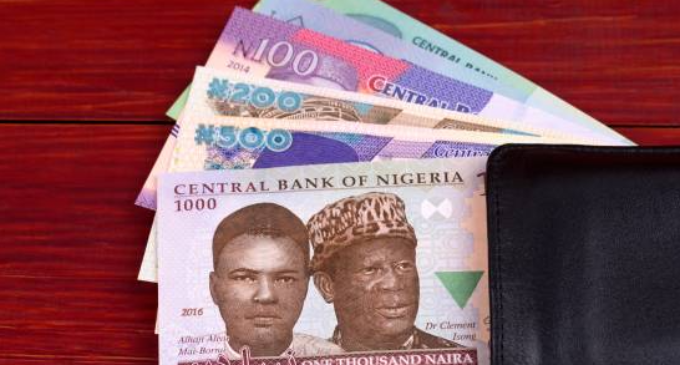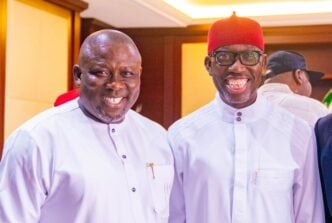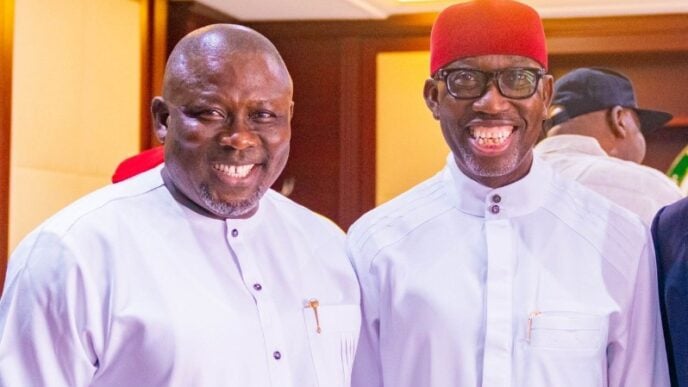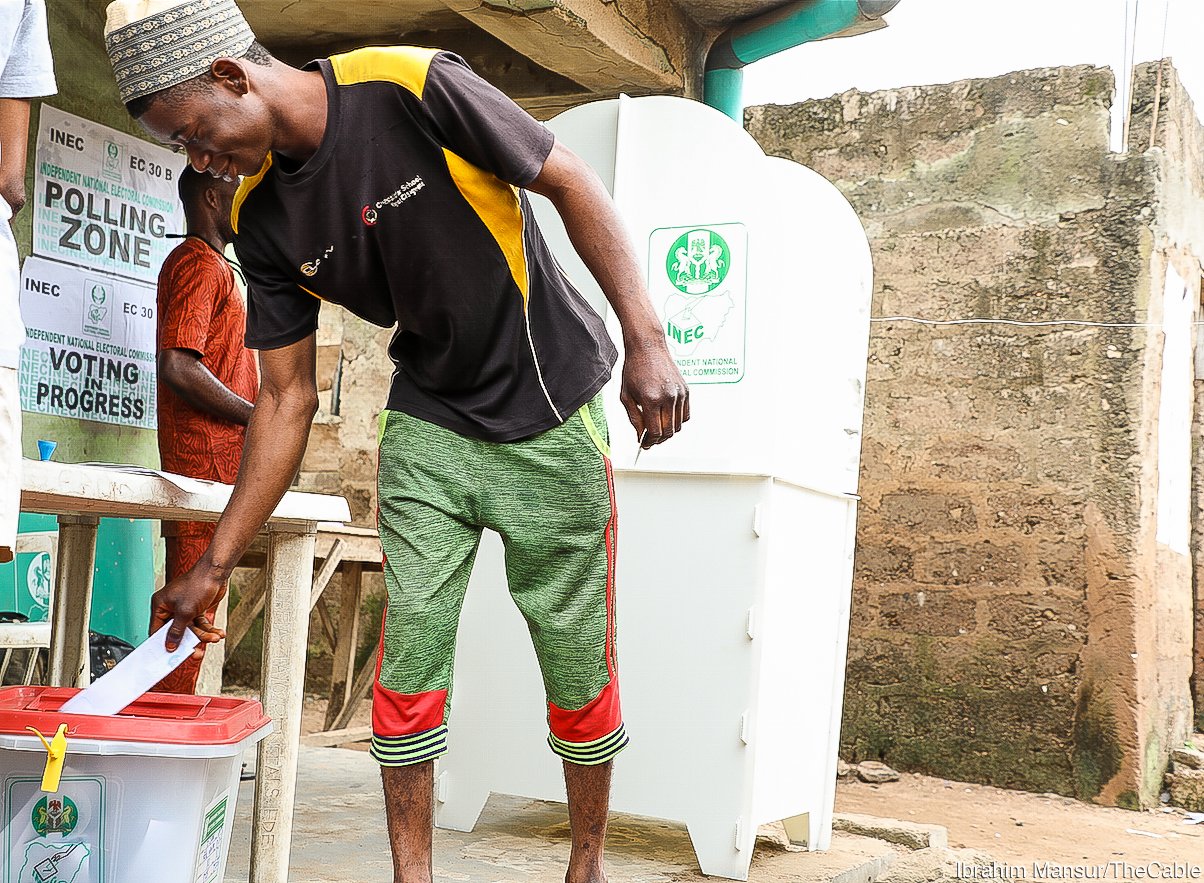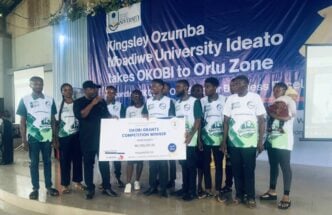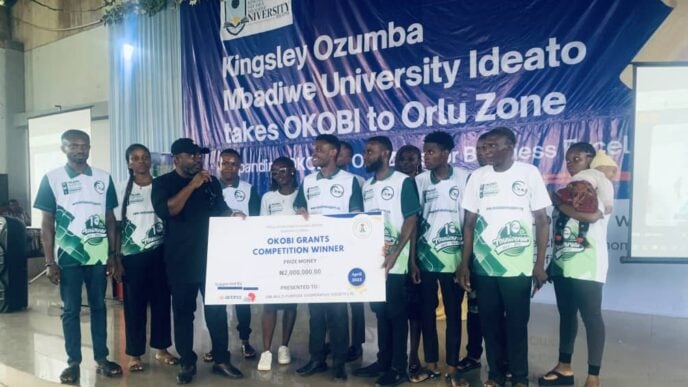So the Economic and Financial Crimes Commission (EFCC) has struck again, this time arresting popular Lagos socialite and businessman, Emeka Okonkwo Daniel, known to many as E-Money, for allegedly spraying United States dollars at an event. According to sources within the commission, he was picked up on Monday night at his residence in the Omole area of Lagos for violating the Foreign Exchange Act.
But E-Money is not alone in this crusade against “currency abusers”.
I also recall that popular crossdresser Bobrisky was arrested on April 4, 2024, for Naira abuse, which eventually led to a six-month conviction by Justice Abimbola Awogboro of the Federal High Court in Lagos on April 12, 2024.
Pascal Okechukwu, popularly known as Cubana Chief Priest, was arraigned by the Lagos Zonal Command of the EFCC on a three-count charge of Naira abuse before Justice Kehinde Ogundare at the Federal High Court.
Advertisement
I think the EFCC’s preoccupation with arresting people for spraying money at parties is an absolute overkill.
Have they nothing better to do with their time and resources? In a country drowning in corruption scandals, economic hardship, and organised crime, is this really where we want our anti-graft agency focusing its energy?
Trust our security agencies to always major in the minor. While billions of naira are being looted from our treasury by political officeholders, the EFCC is busy chasing socialites at parties.
Advertisement
Let’s be honest with ourselves – spraying money at events has become part and parcel of our culture. It’s a tradition at weddings, birthday celebrations, and other ceremonies. What’s an owambe without the excitement of spraying money? The EFCC’s current stance is like trying to criminalise clapping at a concert or dancing at a party. They’ve essentially become the kill-joy at Nigerian celebrations.
The irony here is palpable. In a country where over 133 million people are living in multidimensional poverty according to the National Bureau of Statistics, where the cost of living has skyrocketed, and citizens are struggling to put food on their tables, the EFCC is concerned about how people choose to spend the little money they have left. The naira has been on a free fall, and inflation has hit astronomical heights, yet our anti-graft agency is busy monitoring parties and social gatherings.
The last time I checked, we have many politically exposed persons who have looted our common patrimony walking free on our streets. Former governors with corruption cases that have dragged on for years without conviction. Ex-ministers with suspicious assets scattered across the globe. These are the people the EFCC should have their hands full chasing.
Yahoo boys are everywhere, defrauding innocent people both locally and internationally, tarnishing our country’s image. Yes, the EFCC deserves some credit for making efforts to arrest these fraudsters. But where they consistently struggle is when they have cases against politically exposed persons. They usually bungle these cases due to shoddy investigation and preparation. It’s almost as if there’s an unwritten rule that the big fish must always escape the net.
Advertisement
I’m not advocating for the violation of our laws – far from it. But I am questioning the prioritisation of our law enforcement agencies. In a nation grappling with terrorism, banditry, kidnapping, and large-scale corruption, should spraying money at parties be high on our list of concerns? I think not.
The Central Bank of Nigeria (CBN) Act of 2007 indeed prohibits the abuse of the naira, including spraying at parties. But this law was enacted in a different era, under different circumstances. Perhaps it’s time for our lawmakers to revisit this legislation, considering our cultural practices and the realities of modern Nigerian society.
Moreover, the selective application of this law raises serious questions. We’ve all seen videos of politicians spraying money at campaign rallies and political gatherings. How many of them have been arrested or prosecuted? The answer is next to zero. It seems the law only applies to socialites and celebrities, not to those in the corridors of power.
The EFCC needs to reassess its priorities. While enforcing all aspects of our laws is important, the commission must recognise that it operates in a resource-constrained environment. It simply cannot chase after every infraction, especially minor ones like naira abuse, while ignoring more egregious crimes that have a far greater impact on our economy and national development.
Advertisement
I strongly believe that the EFCC should focus on high-profile corruption cases, financial crimes that drain billions from our economy, and sophisticated fraud schemes that undermine our financial system. Going after socialites for spraying money at parties, while politically exposed persons loot the treasury with impunity, sends the wrong message about our priorities as a nation.
To be fair to the EFCC, they operate within a complex political environment. The pressure from above, the interference from powerful interests, and the technical challenges of prosecuting sophisticated financial crimes all make their job difficult. But that’s precisely why they need to be strategic about where they focus their limited resources.
Advertisement
As we navigate these challenging economic times, let’s hope the EFCC recalibrates its focus. Our nation deserves an anti-corruption agency that targets the real cancer eating away at our economy, not one that’s distracted by the symptoms while the disease continues to spread unchecked.
The next time the EFCC wants to make headlines, let it be for recovering billions in looted funds or securing the conviction of a high-profile corrupt official, not for arresting someone for spraying money at a wedding. That’s where the real battle against corruption lies, not in our celebration halls or event centres.
Advertisement
Nigeria deserves better. Nigerians deserve better.
Advertisement
Views expressed by contributors are strictly personal and not of TheCable.

